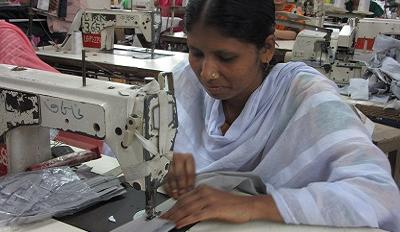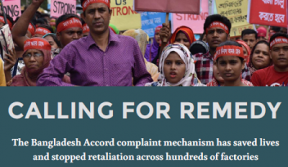
Stories of sexual harassment and violence on movie sets and in newsrooms continue to dominate media cycles. Following a stunning 80 women coming forward to accuse former movie producer Harvey Weinstein of sexual violence, survivors in entertainment, journalism and even US Congress have begun to share their experiences and the names of industry predators. By now, it follows a familiar pattern: first one person comes forward, followed by a second, then a seemingly endless onslaught of stories come out. Celebrities like Alyssa Milano and Rose McGowan have come forward with their own testimonies of rape and harassment. Social media is flooded with accounts from people who had experienced sexual assault or harassment, using the hashtag #metoo.
Here’s an indisputable fact: women and other marginalised people face challenges in accessing the right to work free from gender-based violence. This problem is not going away, and, in lieu of a silver bullet solution to dismantle patriarchy in its entirety, it’s going to take a considerable effort – one that includes governments and corporations taking responsibility for protecting workers from gender-based violence in all parts of their supply chains in ways they’ve resisted before.
Despite all the attention to the issue, there continues to be international debate around whether it even makes sense to create a binding international standard on gender-based violence, with a number of governments and corporations dragging their feet on lending support. The International Labor Rights Forum’s new report, “Time For Change: Advancing Legal Protections on Gender-Based Violence at Work,” explores the ways in which gaps in international norms and national laws allow women and vulnerable populations to fall through the cracks.
Kalpona Akter, Executive Director of the Bangladesh Center for Worker Solidarity, recounts in the report her recent experience convening a series of workshops for garment workers to discuss gender-based violence at work. At first, she said, the women insisted they didn’t know anyone affected by the issue and felt the topic shouldn’t be discussed at all. Then, she said, “Finally, during the fourth workshop one woman recounted that she had been raped multiple times by her supervisor under threat. He used economic fear, forcing her to go to the factory on the weekend saying that she would lose her job if she didn’t and then he raped her.”
After that, “everyone else started speaking,” she said. “It was our own #metoo moment. All the women in the group had their own story of sexual violence or harassment at work.”
Out of victims of workplace gender-based violence, those that are not wealthy and white far outnumber those that are – in the US and globally. The media may not reflect this, but these same patterns of powerful men abusing and harassing people in their workplace happen everywhere. Regardless of where the conversation focuses, the issue is very much global. Without widely applicable legal protections that provide specific, comprehensive coverage for gender-based violence in the world of work, women and marginalised groups will continue to suffer.
The fact that so much of the public conversation is focusing on workplace abuse is a testament to the ways in which our lives intersect at work. One Bangladeshi garment worker, speaking under the pseudonym Taslima for fear of retaliation, described the relentless harassment women fend off during a workday. “When we are in the street we face barriers, and then in the factory. Even in the house we have barriers, don’t we? … Everyone is a victim of abuse: by their husbands, by the company, by the garment factory owners.”
The ubiquity of gender-based violence doesn’t negate the fact that it stands apart from other workplace violations. The traumatic, personal nature of violence, and the shame and fear associated with reporting it, require specific attention in international standards and national laws. If created, an International Labour Organization Convention, supplemented by a Recommendation, could provide much-needed clarification, structure and processes to guide governments, employers and unions around the world on this issue.
When the wealthiest and most well-known women in the world sometimes can’t get through even a day at work without being groped – what does that say about the rest of the world? The majority of working women lack similar access to the support, the money and the privilege of being perceived as ‘believable’. So, when we talk about Alyssa and Rose, we need to talk about Kalpona and Taslima too.

